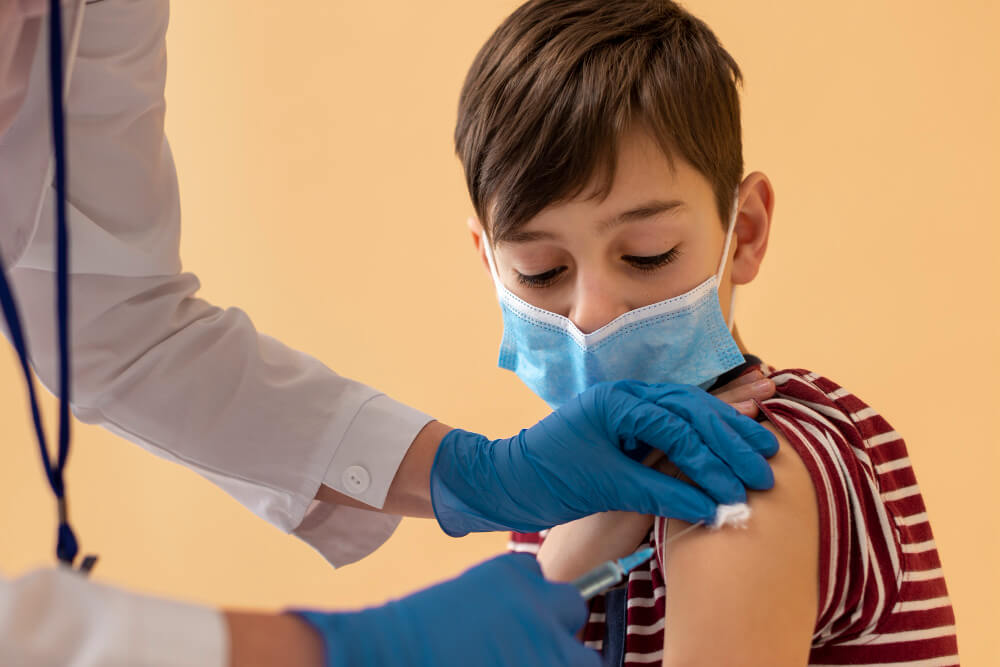The Importance of Immunizations in Pediatric Care
Immunizations are a cornerstone of modern medicine, offering powerful protection against a range of infectious diseases that were once major threats to children’s health. From measles and polio to whooping cough and chickenpox, vaccines have revolutionized child healthcare, significantly reducing the incidence and severity of these illnesses. Pediatricians play a critical role in guiding parents and caregivers through the immunization process, ensuring children receive the recommended vaccines on schedule and addressing any concerns they may have.

Understanding Pediatric Immunizations
What Are Pediatric Immunizations?
Pediatric immunizations are vaccines specifically designed to protect children from various infectious diseases. These vaccines work by stimulating the child’s immune system to recognize and combat harmful pathogens. Administering vaccines during childhood is crucial because children are more susceptible to infections due to their developing immune systems.
Importance of Pediatric Immunizations
Immunizations play a critical role in:
- Preventing life-threatening diseases such as measles, polio, and whooping cough.
- Reducing the spread of infectious diseases within communities.
- Protecting future generations by eradicating certain diseases.
How Vaccines Work
Vaccines contain weakened or inactive parts of a particular organism (antigen) that trigger an immune response. This response helps the body “remember” the pathogen, enabling it to fight off the infection if exposed in the future.
Recommended Immunization Schedule
Birth to 6 Months
During the first six months, infants typically receive:
- Hepatitis B (HepB)
- Rotavirus (RV)
- Diphtheria, Tetanus, and Pertussis (DTaP)
- Haemophilus influenzae type b (Hib)
- Pneumococcal conjugate vaccine (PCV13)
- Inactivated Poliovirus (IPV)
6 to 18 Months
As the child grows, additional doses are administered for ongoing protection:
- Additional doses of DTaP, Hib, and PCV13
- Influenza vaccine (yearly)
- First dose of Measles, Mumps, and Rubella (MMR)
- First dose of Varicella (chickenpox)
- Hepatitis A (HepA)
4 to 6 Years
Key vaccines at this stage include:
- Booster doses of DTaP, IPV, MMR, and Varicella
- Annual influenza vaccine
Adolescence (11-18 Years)
Vaccines during adolescence focus on long-term protection:
- Tetanus, Diphtheria, and Pertussis (Tdap)
- Human Papillomavirus (HPV)
- Meningococcal conjugate vaccine (MenACWY)
- Influenza vaccine (yearly)
The Role of Pediatricians in Childhood Immunizations

- Developing and Implementing Immunization Schedules:
- Creating and implementing personalized immunization schedules based on the child’s age, health history, and any potential contraindications.
- Administering Vaccines:
- Safely and effectively administering vaccines according to recommended guidelines.
- Monitoring for Adverse Reactions:
- Monitoring children for any adverse reactions to vaccines and providing appropriate care.
- Addressing Parental Concerns:
- Addressing parental concerns and misconceptions about vaccines, providing accurate and reliable information based on scientific evidence.
- Promoting Vaccine Awareness:
- Educating parents and caregivers about the importance of immunizations and the benefits of vaccination.
- Staying Updated on Immunization Guidelines:
- Staying abreast of the latest immunization recommendations and guidelines from the Centers for Disease Control and Prevention (CDC) and other relevant health organizations.
The Importance of Following the Recommended Immunization Schedule
Following the recommended immunization schedule is crucial for several reasons:
- Protection Against Serious Diseases:
- Vaccines protect children from serious, potentially life-threatening diseases, such as measles, polio, and whooping cough.
- Herd Immunity:
- When a high percentage of the population is vaccinated, it helps to create herd immunity, which protects even those who cannot be vaccinated due to medical reasons.
- Reduced Risk of Outbreaks:
- High vaccination rates help to prevent outbreaks of vaccine-preventable diseases.
- Long-Term Health Benefits:
- Immunizations provide long-term protection against many infectious diseases.
Addressing Common Concerns About Vaccinations
- Vaccine Safety:
- Assuring parents that vaccines undergo rigorous safety testing and monitoring before being licensed for use.
- Addressing common concerns about vaccine safety, such as potential side effects and the risk of autism.
- Vaccine Effectiveness:
- Explaining the effectiveness of vaccines in preventing disease.
- Vaccine Schedules:
- Explaining the rationale behind the recommended immunization schedule and addressing any questions parents may have about specific vaccines.
Conclusion
Immunizations are a cornerstone of preventive healthcare for children. Pediatricians play a vital role in ensuring that children receive the recommended vaccines on schedule, addressing parental concerns, and promoting the importance of immunization in protecting children’s health and well-being. By working closely with their pediatricians, parents can make informed decisions about their child’s health and ensure that they receive the best possible protection against preventable diseases.
Schedule an appointment with our Pediatric care services for immunization to protect your child against preventable diseases (432) 322-8675 or (432) 322-8676 or visit us https://sccodessa.com/
